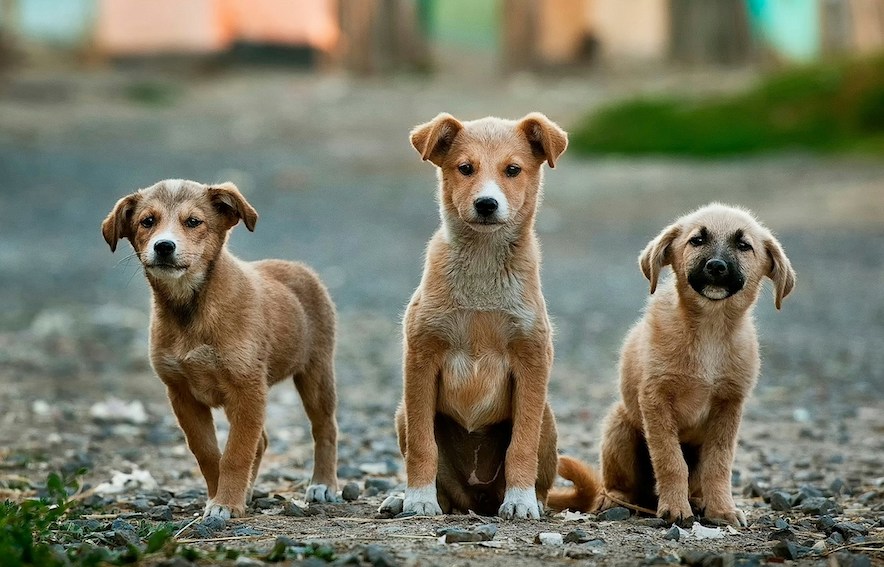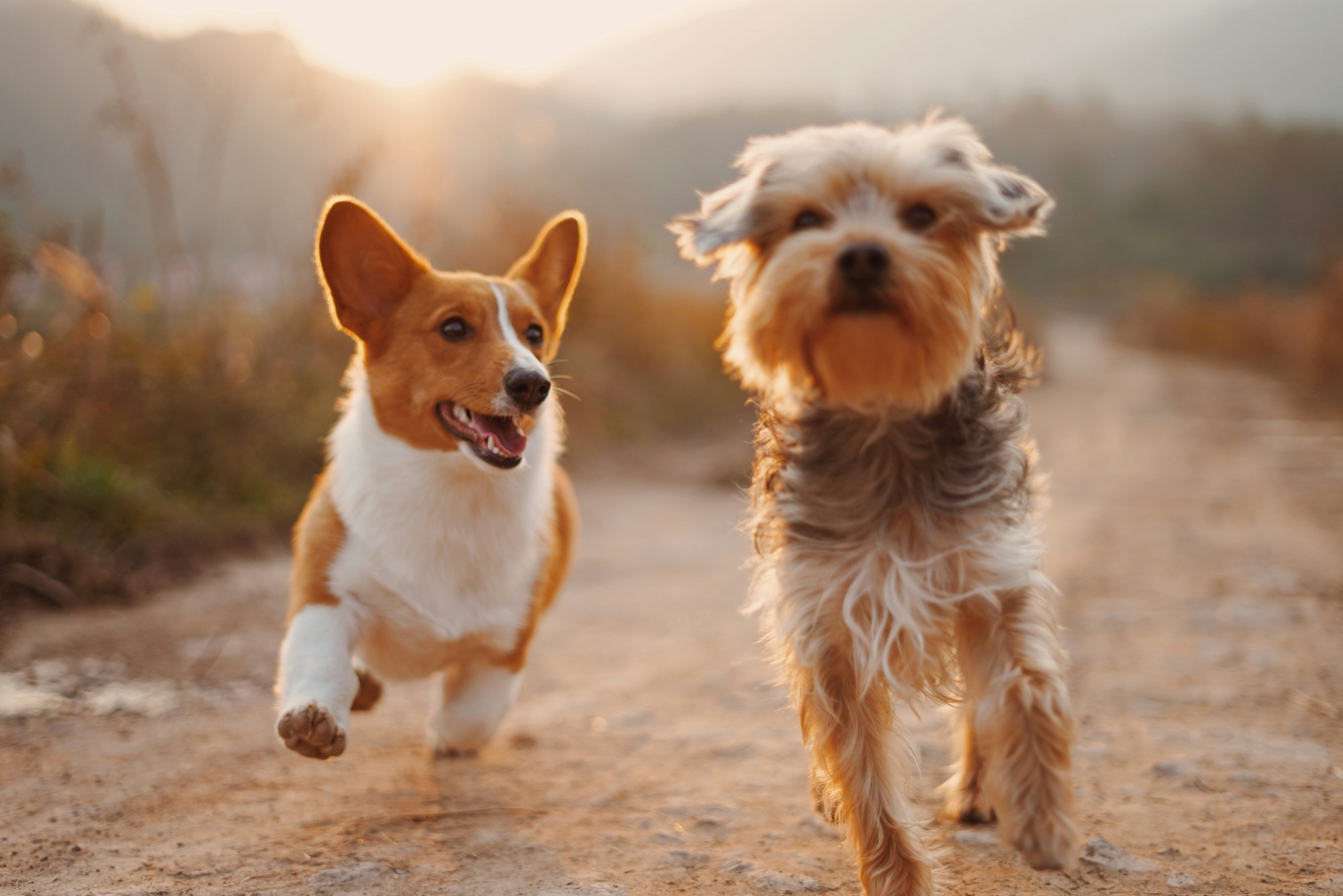Have you ever watched your dog play with another and wondered if what you’re seeing is the canine equivalent of friendship?
It’s a question many dog owners ponder as they observe their pets’ interactions with fellow four-legged companions. Unlike humans, who can verbalize their feelings and intentions, dogs communicate their affections and social inclinations through body language and behavior. This blog post delves into the fascinating world of dog social dynamics to explore whether dogs can indeed form friendships with each other, drawing on scientific insights to shed light on this intriguing subject.
Can Dogs Have Friends?
The question of whether dogs can be friends with other dogs is met with a resounding yes by both dog owners and scientific studies. Dogs, being highly social animals, have the capacity to form complex social bonds, not only with humans but with other dogs as well.
Research in animal behavior suggests that dogs display preferences for certain peers, engaging in mutual activities, showing signs of distress when separated, and exhibiting behaviors that strongly resemble human notions of friendship.
An Italian study also found that just like humans, dogs appear to grieve when a canine friend passes.
“Domestic dogs are a social species who have adapted to live in multispecies societies,” said Dr. Federica Pirrone, a veterinary physiologist at the University of Milan and the lead author of the study. “There is plenty of literature showing that they develop both dog-dog and dog-owner attachments, thus we expect the mechanisms to be similar.”
Factors That Influence Dog Friendships
Just like humans, not all dogs get along with everyone they meet. Several factors influence the formation and quality of friendships among dogs:
Personality and Temperament: Dogs have individual personalities. Some are more outgoing and sociable, while others are shy or reserved. Compatible personality types are more likely to form strong friendships.
Breed Tendencies: While breed alone doesn’t determine a dog’s ability to make friends, certain breed characteristics can influence social compatibility. For instance, herding breeds may engage more with dogs that match their energy levels and play styles.
Socialization: Early socialization plays a crucial role in a dog’s social skills. Dogs that are exposed to a variety of people, environments, and other animals from a young age tend to be more adaptable and socially confident.
Environment: The environment in which dogs interact can also affect their relationships. Dogs meeting in a relaxed, open space are more likely to have positive interactions compared to those in confined or stressful settings.
Research indicates that socialization and environment significantly impact a dog’s social behaviors. A study published in Applied Animal Behaviour Science highlighted the importance of early social exposure in developing well-adjusted social behaviors in dogs.
Signs of Canine Friendship
Identifying friendships between dogs involves observing their interactions and behaviors. Signs of a strong bond include:
Frequent Play: Play is a clear indicator of a positive relationship. Look for signs of mutual play, such as play bows, chasing, and reciprocal play fighting.
Body Language: Relaxed body language, like open mouths and wagging tails, during interactions suggests comfort and enjoyment in each other’s company.
Comfort with Physical Contact: Dogs that are friends often don’t mind close physical contact. They may sleep near each other, groom each other, or simply lie down together.
Protective Behavior: In some cases, dogs will show protective behaviors towards their friends without being overly aggressive.

Benefits of Canine Friendships
Friendships between dogs offer numerous benefits:
Physical Health: Regular play and socialization with dog friends contribute to a dog’s physical health by providing exercise and reducing obesity.
Mental Health: Positive interactions with other dogs can reduce anxiety, stress, and boredom, leading to better overall mental health.
Social Skills: Interacting with other dogs enhances a dog’s social skills, making them more adaptable and less likely to develop behavioral issues.
Fostering Friendships Between Dogs
Helping your dog make and keep friends is beneficial for their well-being:
Regular Socialization: Regular visits to dog parks or arranging playdates with known dog friends can foster lasting friendships.
Positive Introductions: Introduce dogs in neutral, open spaces to ensure positive first impressions.
Observe Body Language: Learn to read your dog’s and other dogs’ body language to ensure interactions remain friendly and comfortable for both parties.
Respect Individual Preferences: Just like people, dogs have preferences. If your dog doesn’t get along with another, don’t force the interaction.
The bonds dogs form with each other are more than just happenstance or fleeting moments of play. They are, in many ways, the manifestations of genuine friendships that parallel human connections in depth and complexity. Scientific studies and observations affirm that dogs are indeed capable of forming enduring friendships with other dogs, influenced by factors such as personality, breed tendencies, early socialization, and the environments in which they interact.
Recognizing the signs of these canine friendships allows us as owners to better understand and nurture the social lives of our pets. The playful chases, the shared moments of relaxation, and the mutual displays of affection and protection are all indicators of a bond that contributes significantly to a dog’s physical and emotional well-being. By fostering these connections, we offer our dogs a richer, more fulfilling life.
Encouraging and supporting our dogs in developing friendships with their kind not only ensures they lead happier, healthier lives but also deepens our appreciation for the complexity of their emotional world. As we continue to explore the dynamics of canine friendships, we open our hearts a little wider to the remarkable capacity for love and loyalty in the animal kingdom.
In the end, the joy and companionship dogs find in each other’s company is a beautiful reminder of the universal need for connection, belonging, and friendship. As dog owners and lovers, it’s amazing to witness and facilitate these special relationships, enriching the lives of our beloved pets and, invariably, our own.










